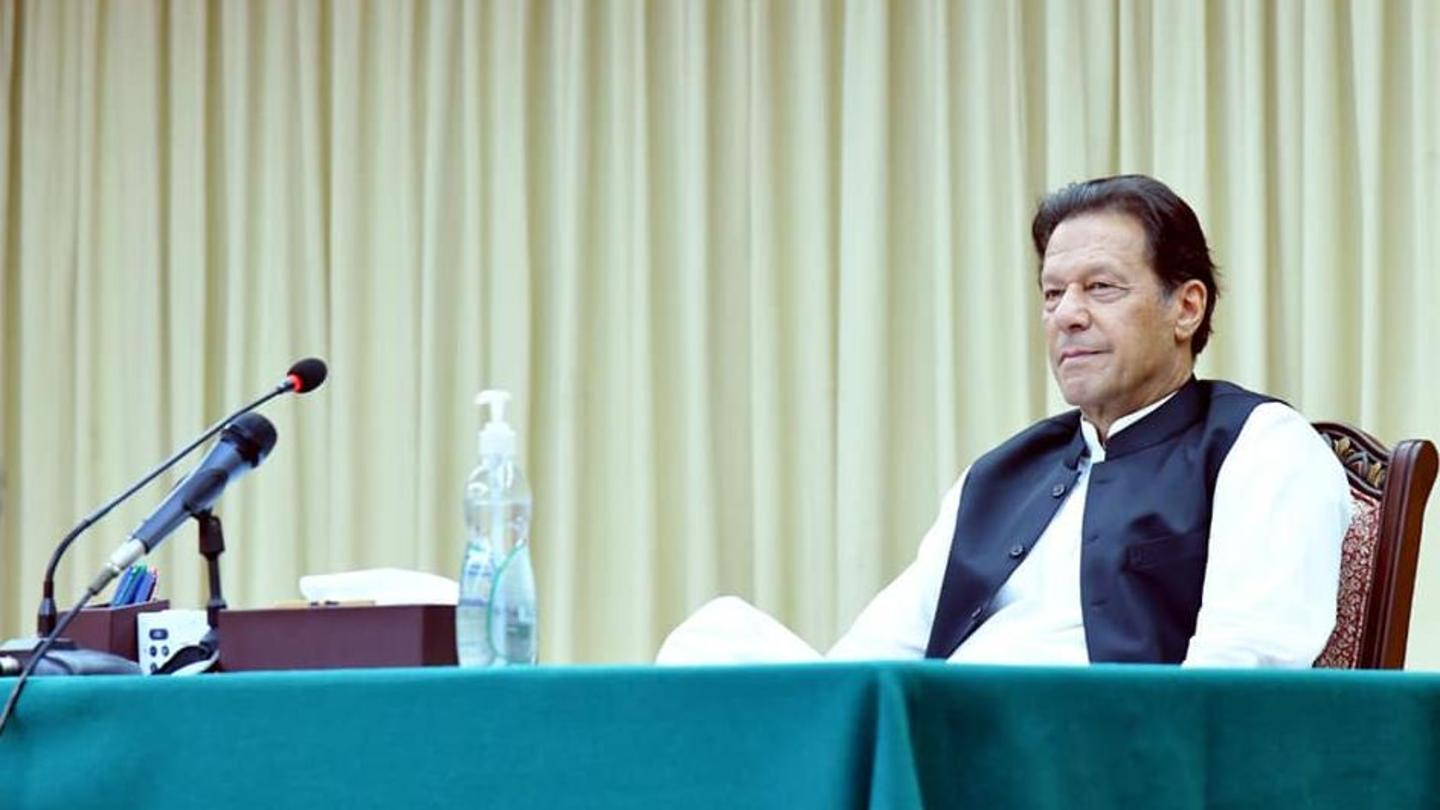
Pakistan Prime Minister ousted: Important highlights; what to expect next?
What's the story
Pakistani Prime Minister Imran Khan was removed from power on Sunday after losing the no-confidence vote in the National Assembly, despite the fact that he was still a long way from completing his five-year tenure.
The much-delayed vote finally concluded in the early hours of Sunday after the Assembly session was adjourned multiple times on Saturday.
Let's take a look at some important highlights.
Context
Why does this story matter?
The vote on the no-confidence motion led to Khan's defeat—who lost by 174 votes in favor of the motion in the 342-member National Assembly—making him Pakistan's first PM to be removed through a no-trust vote.
This came after Pakistan's Supreme Court on Thursday overturned the dismissal of the motion by Deputy Speaker Qasim Suri last Sunday and reconstituted the Assembly terming the actions "unconstitutional."
Highlights #1
Speaker, Deputy Speaker of National Assembly resigned
As per the SC's orders, the National Assembly session for the no-trust vote began at 10:30am (Pakistan time) on Saturday but the proceedings faced multiple delays.
Finally, the voting began at 11:58pm and went on beyond midnight.
However, moments before the vote commenced, Speaker Asad Qaiser and Deputy Speaker Suri resigned.
Then, Pakistan Muslim League-Nawaz (PML-N) leader and former speaker—Ayaz Sadiq—took over the session.
Highlights #2
Khan remained absent, his party colleagues staged walkout
Khan was absent from the Assembly during the vote, but other Pakistan Tehreek-e-Insaf (PTI) legislators staged a walkout.
So, the joint Opposition—bolstered by the ruling PTI-led coalition's defections—smoothly obtained a majority of 174 votes in the 342-member Assembly in favor of the no-trust motion.
Notably, Khan became the first incumbent prime minister in Pakistan's history to be dismissed from office through a no-confidence vote.
Highlights #3
Khan vacated official residence before the voting began
Interestingly, Khan vacated the Prime Minister's official residence even before losing the no-confidence vote in the Assembly.
Meanwhile, after Khan's ouster, Pakistan's Attorney General, Khalid Javed, also stepped down from the post.
"I have tried to serve the country to the best of my ability and conscience...I now deem it appropriate to tender my resignation," Javed stated in a letter to President Arif Alvi.
Next PM?
Shehbaz Sharif is the frontrunner for PM post
Moreover, aspiring candidates for the post of Pakistan's next prime minister had filed their nomination papers on Sunday. The National Assembly will reportedly convene at 2:00pm on Monday to elect the country's new premier.
However, with Khan's departure, the stage is reportedly set for Leader of the Opposition and PML-N's President Shehbaz Sharif—brother of former Pakistani PM Nawaz Sharif—to be the new prime minister.
Threat letter?
Court approves plea requesting probe into foreign conspiracy claims
On Sunday, the Islamabad High Court accepted a plea requesting an investigation into the alleged "threat letter"—that Khan and his party claim proves the conspiracy of certain "foreign powers" to topple his government.
The case will be taken up on Monday.
Meanwhile, Khan is yet to make a public statement following his removal. However, the PTI has called for nationwide "peaceful protests" on Sunday.
Information
Opposition wants early elections
Meanwhile, the Opposition parties had earlier stated that they want early elections in Pakistan, but only after Khan suffers a political defeat and legislation to ensure free and fair elections is enforced. To note, the country's next parliamentary elections are scheduled for August 2023.